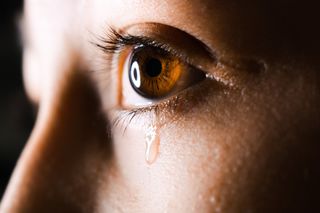Trauma
How to Help After the Aurora Mass Shooting
Tips for supporting survivors of mass violence and trauma.
Posted February 16, 2019

The mass shooting in Aurora, Illinois on Friday claimed the lives of 5 Henry Pratt Co. employees and injured 5 police officers and 1 staff person.
Common survivor responses to mass trauma like the Aurora shooting include trauma, grief, anxiety, depression, withdrawing, problems sleeping, and spiritual struggles.
What survivors need most right now is for others to help them know that they are not alone and that there are people in their life that they can turn to for help—being a friend is one of the best ways you can help.
How to Provide Social Support
Research has shown that seeking social support in the aftermath of mass shooting is one of the best things people can do to help cope with and reduce trauma.
Keep in mind that people vary in how much social support they feel that they need. For example, some people need a lot of support from lots of people. Others need a lot of support from only a few deep relationships. Still others do not seem to need much social support at all. In the same way, people vary in how they feel socially supported. Some people feel supported when others listen to them compassionately. Others feel supported when their loved ones help them out or give them advice.
Following are some ways to encourage social support:
- Listen by being present and don't push survivors to share before they are ready.
- Provide accurate information and encourage survivors to limit media exposure, which can trigger anxiety and more struggles if left unchecked.
- Help survivors understand how the shooting has affected their relationships and social support network.
- Assist survivors in articulating what level and type of support they need right now.
- Encourage them to ask for the help they need.
- Strategize with them about how to overcome any actual or perceived barriers to them getting the support they need from others.
- Support survivors in connecting with existing and potential sources of social support.
- Let survivors know that it is okay to ask for help and support from others, that it is a sign of strength not weakness to ask for assistance.
- Encourage survivors to participate in community events and gatherings as another way of connecting with others.
- Ways to help support those impacted include meeting survivors’ basic needs, listening, being present, giving accurate information, and referring for professional help when needed.
- Gather in community and expressions of public grief and faith like memorials which can also help foster connection and hope.
How to Refer for Additional Support
It is important that you recognize when additional follow-up services from a licensed mental health professional might be needed after a mass shooting. Signs include intense stress symptoms that don’t seem go away and/or interfere with everyday life, self-medicating with alcohol or substances, and thoughts of suicide.
If a referral to a professional mental health professional is needed, start by reminding your loved one that you care about him or her. Share with them a few specific reasons why you think they might need to talk to a licensed mental health professional. If there is the possibility that your loved one might be an immediate danger to self or others, you need to make a referral right away, independent of their consent. That is, you need to proactively get in touch with a licensed mental health professional, proper authorities (e.g., police), or call 911.


